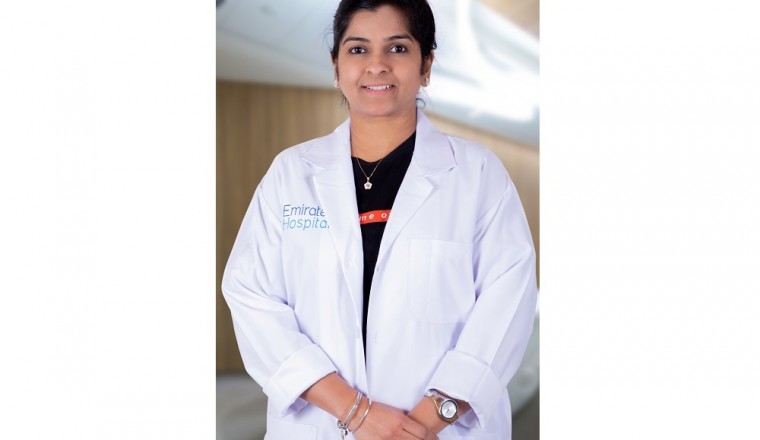This extremely rare condition has been identified in only two patients worldwide
United Arab Emirates, 10 April, 2019 – (AETOSWire)- Emirates Hospital-Jumeirah (EHJ), an Emirates Healthcare Company and an internationally recognized 100-bed beacon of progress in the region’s healthcare system, is treating an interesting case. When 7-year-old Maryam from Syria complained of abdominal pain, her parents thought she had an upset stomach. However, repeated complaints led to a consultation with a doctor at EHJ and a diagnosis of Henoch Schonlein Purpura (HSP).
While doctors were investigating the abdominal pain, they noticed that Maryam’s abdominal sonography revealed absent ovaries and an abnormally small uterus. An MRI confirmed their findings.
“When we discovered that Maryam had absent ovaries, we realised that the child was suffering from one of three conditions – external genitalia that look like a girl’s although the person has male sex chromosomes, absent ovary syndrome or a hormonal disorder. Karyotyping revealed the presence of XX chromosomes, proving that the child was female. Her hormonal tests were also clear, probably due to her age,” explained Dr Sripradha Sudarsanam, Specialist Paediatrician at Emirates Hospital-Jumeirah.
Patients with müllerian agenesis have absent ovaries and abnormalities of the uterus, fallopian tubes, vagina and reproductive system. In approximately 30 percent of such cases, there are also renal abnormalities such as a horseshoe kidney or unilateral renal agenesis; 25 percent of patients with this syndrome have skeletal anomalies such as spina bifida or scoliosis.
It is extremely rare for a patient to have isolated absent ovaries and an abnormally small uterus; this condition has been diagnosed in as few as two patients worldwide. Ovaries are extremely important to young girls; they produce the hormones necessary for a healthy reproductive system, strengthen the bones and affect well-being. There is no known cause for the condition, which is usually diagnosed when the patient is between 16 and 20 years of age following a consultation to determine why she has failed to menstruate. More than a decade ago, an 18-year-old girl was diagnosed with the same condition.
Doctors at Emirates Hospital-Jumeirah have created a plan to treat Maryam when she reaches the age of 14. Based on the advice of an endocrinologist, the team will administer hormones in order to simulate the hormonal changes associated with the menstrual cycle and monitor the size of Maryam’s uterus. The aim of the treatment is to promote the development of female secondary sex characteristics and boost Maryam’s confidence.
Maryam was fortunate to receive a diagnosis at such a young age. People who notice any unusual symptoms should consult a doctor.



